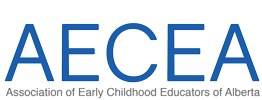During the tumultuous stage of adolescence, the brain undergoes significant changes. During this period, adolescents are more likely to engage in risk-taking behaviours, seek out novel and new experiences, and emphasize peer friendships over family relationships. These neurological, hormonal, and behavioural shifts can leave educators, parents, and other caring adults feeling overwhelmed and reactive rather than supportive. This workshop explores the neurobiology and development of the adolescent brain, as well as the subsequent effects on cognition, emotions, physiology, relationships, and behaviour. Participants will leave with new insights and ideas for supporting adolescents as they navigate this critical stage of development.
Some of the Topics Included
- Historical and Cultural Context of Adolescence
- Introduction to Neurobiology
- How the Adolescent Brain Is Different
- The Role of Dopamine on the Developing Brain
- How Attachment and Parental Relationships Shape the Brain
- Gender and the Brain
- Risk-Taking, Novelty Seeking, and Peer Relationships
- The Effects of Trauma on the Adolescent Brain
- Mental Health Disorders and Adolescence
- The Role of Substances and Technology
- Practical Strategies for Supporting Adolescents
Target Audience
This is an introductory-intermediate level workshop intended for school personnel, social service and health care professionals, counsellors, social workers, and anyone working with adolescents.
Method of Delivery
Presentation, video, personal reflection, and small group discussions.
Learning Objectives
At the end of this workshop, participants should be able to:
- Define adolescence in a historical and cultural context
- Describe features of the adolescent brain and how it differs from the child and adult brain
- Identify the influence of substances and technology on adolescent brain development
- List strategies for supporting healthy adolescent brain development
Location:
Online
Date & Time:
September 10, 2024, 9:00 a.m.-12:00 p.m. MST
For more information and to register, go here.
AECEA Professional and Student members get 15% off public workshops through the Crisis and Trauma Resource Institute (CTRI), log in to your account for the discount code!
